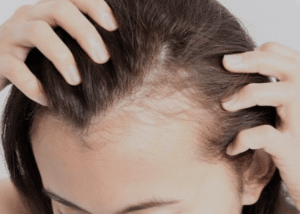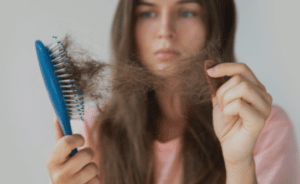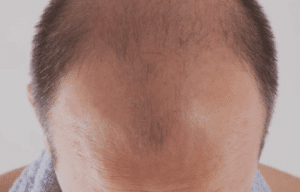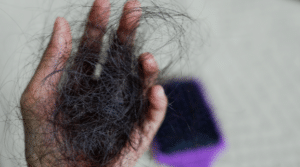The Ultimate Guide to Shampoo for Hair Loss: Understanding, Choosing, and Using
Introduction: Shampoo for hair loss

Hair loss is a common concern for many people, impacting self-esteem and confidence. While there are various factors contributing to hair loss, from genetics to lifestyle choices, finding the right shampoo can be a crucial step in managing this issue. In this comprehensive guide, we’ll delve into the world of shampoos for hair loss, exploring the causes of hair loss, understanding how shampoos work, and providing tips on choosing and using the best shampoo for your needs.
Understanding Hair Loss: Shampoo for hair loss
Hair loss, medically known as alopecia, can occur due to numerous reasons, including genetics, hormonal changes, stress, nutritional deficiencies, and certain medical conditions. Understanding the underlying cause of your hair loss is essential in determining the most effective treatment approach.

Hair loss, medically known as alopecia, can occur due to a variety of reasons. Understanding the underlying causes of hair loss is crucial for determining the most effective treatment approach. Here are some common reasons for hair loss:
-

shampoo for hair loss Genetics (Androgenetic Alopecia): Also known as male or female pattern baldness, this type of hair loss is the most common and is largely determined by genetics. It typically follows a predictable pattern, with hair thinning and receding at the temples and crown in men, and overall thinning in women.
- Hormonal Changes: Hormonal fluctuations can contribute to hair loss, particularly in women. Conditions such as pregnancy, childbirth, menopause, thyroid disorders (hypothyroidism or hyperthyroidism), and hormonal imbalances can all impact hair growth cycles and lead to temporary or permanent hair loss.
- Stress (Telogen Effluvium): Physical or emotional stress can disrupt the hair growth cycle, pushing more hair follicles into the resting phase (telogen phase), resulting in excessive shedding. This type of hair loss is usually temporary and resolves once the stressor is removed or managed.
- Medical Conditions: Certain medical conditions can cause hair loss as a symptom. These include autoimmune diseases like alopecia areata, where the immune system mistakenly attacks hair follicles, as well as scalp infections, psoriasis, and lupus.
- Nutritional Deficiencies: Inadequate intake of essential nutrients, such as iron, zinc, vitamin D, and protein, can negatively impact hair growth and lead to thinning or shedding. An imbalanced diet or underlying medical conditions affecting nutrient absorption can contribute to nutritional deficiencies.
- Medications and Treatments: Certain medications and medical treatments can cause hair loss as a side effect. These include chemotherapy, radiation therapy, hormonal medications (such as birth control pills), antidepressants, and blood thinners. Hair typically grows back once the medication or treatment is discontinued, but it may take time.
- Poor Hair Care Practices: Over-styling, excessive heat styling, tight hairstyles (like ponytails or braids), frequent use of harsh chemicals (such as bleach or relaxers), and aggressive brushing or combing can damage the hair shaft and weaken the hair, leading to breakage and thinning over time (known as traction alopecia).
- Age: As we age, the rate of hair growth naturally slows down, and hair follicles may become less active. This can result in overall thinning of the hair, particularly in individuals with a genetic predisposition to hair loss.
- Environmental Factors: Exposure to environmental pollutants, UV radiation, harsh weather conditions, and hard water can all impact the health of the scalp and hair follicles, potentially leading to hair loss or damage.
It’s essential to identify the specific cause or causes of hair loss in individual cases to determine the most appropriate treatment and management strategies. Consulting with a dermatologist or a trichologist can help diagnose the underlying cause and develop a personalized plan to address hair loss effectively.

Role of Shampoos in Managing Hair Loss: Shampoo for hair loss
While shampoos alone may not completely reverse hair loss, they play a vital role in maintaining scalp health and promoting hair growth. Specialized shampoos for hair loss typically contain active ingredients that target specific causes of hair loss, such as stimulating hair follicles, reducing inflammation, and blocking DHT (dihydrotestosterone), a hormone linked to hair thinning.
Key Ingredients in Hair Loss Shampoos:
- Biotin
- Ketoconazole
- Saw Palmetto
- Caffeine
- Niacin
- Peppermint Oil
- Rosemary Extract
- Zinc Pyrithione
Choosing the Right Shampoo: Shampoo for hair loss
When selecting a shampoo for hair loss, it’s essential to consider several factors, including your hair type, the severity of hair loss, any underlying scalp conditions, and the presence of sensitive skin or allergies. Look for shampoos with clinically proven ingredients and avoid harsh chemicals that may further damage the hair and scalp.
Tips for Using Hair Loss Shampoos Effectively:
- Follow the manufacturer’s instructions carefully.
- Use lukewarm water to wash your hair, as hot water can strip away natural oils and irritate the scalp.
- Massage the shampoo gently into the scalp for a few minutes to improve circulation and ensure thorough cleansing.
- Rinse thoroughly to remove all product residue.
- Consider pairing your shampoo with a conditioner or treatment specifically formulated for hair loss for optimal results.
- Be patient and consistent with your shampoo regimen, as it may take several weeks to notice significant improvements.
Combining Shampoo with Other Hair Loss Treatments:
In addition to using specialized shampoos, there are various other treatments and strategies that can help manage hair loss effectively. These include:
- Minoxidil (Rogaine)
- Finasteride (Propecia)
- Low-Level Laser Therapy (LLLT)
- Nutritional Supplements
- Scalp Massage and Microneedling
- Stress Management Techniques
- Balanced Diet and Lifestyle Changes
Managing Expectations and Seeking Professional Advice:
It’s important to have realistic expectations when using hair loss shampoos and other treatments. While they can help improve the condition of the scalp and promote healthier hair growth, they may not work for everyone, and results may vary. If you’re experiencing severe or persistent hair loss, it’s advisable to consult a dermatologist or a trichologist for personalized advice and treatment options tailored to your specific needs.